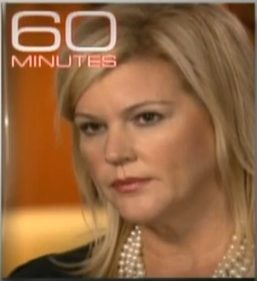Will Parlay Betting Crash the Housing Market?
Meredith Whitney told CNBC, “30 percent of young men said they have not had sex in over a year and don’t seem to care.” Half of the young man population isn’t interested in dating and according to Pew Research 63% of young men are single, the highest percentage ever.
The “Oracle of Wall Street” didn’t mention this but, according to the Townsend Recovery Center, “Research suggests that there may be a connection between sex addiction and other addictive behaviors, such as drug use, gambling, and eating disorders. That connection would be a rush of adrenaline and dopamine, which creates a feeling of excitement and pleasure.
A grinning Sara Eisen quickly understood Whitney’s point that young men are replacing the rush of dopamine received from sex or the pursuit of sex (dating) with trying to hit a real-time parlay. As terrible as the odds are of hitting a same game parlay, some young men may have a better shot at hitting such a bet than scoring with a woman. Plus, you have proof to show your buddies that you hit the parley.
Whitney’s claim is the housing market is in trouble because 74% of homes are owned by people over 50 and they won’t have anyone to sell to because family formation is dropping because young men are on their phones betting parlays on sporting events instead of..well..forming families, or practicing said formation. Whitney also points at young women who are not using their womanly charms to form families but are instead “spending their time with Instagram moments at Taylor Swift concerts.”
Whitney pops up every so often with a bold call. She reportedly predicted the 2008 housing crash. However, her prediction given on 60 Minutes in 2010 was a dud. “There’s not a doubt in my mind that you will see a spate of municipal bond defaults,” she said in the “60 Minutes” interview. “You could see 50 sizable defaults, 50 to 100 sizable defaults, more. This will amount to hundreds of billions of dollars worth of defaults.” Didn’t happen.
By the way, the U.S. isn’t the only place libidos are lacking. Medium reported in 2020, “The Japan Family Planning Association reported 45% of young Japanese women, and over 25% of men, ‘were not interested in or despised sexual contact.’”
Of course, none of this is likely a problem, except the Oracle believes old folks will begin selling their homes “with a vengeance starting next year.” Really? Why next year?
Before testosterone-fueled men were glued to their phones rooting for parleys they were on their phones buying meme stocks like GameStop Corp. during the COVID lock-down.
While Whitney was mussing about parleys GameStop disclosed it will allow new CEO Ryan Cohen to purchase equities with corporate funds rather than just short-term debt. Report’s Almost Daily Grant’s, “What’s more: Cohen, the retailer’s largest shareholder, is permitted to buy for the company’s account the same stocks as he holds in his own.”
Grant’s continued, “Wedbush analyst Michael Pachter describing Cohen’s new arrangement as ‘one of the most inane moves we’ve ever seen,’ adding thus:
Investors have a myriad of investment vehicles available to them and therefore do not need GameStop to act as a mutual fund. The company’s decision to invest in equities other than its own is alarming, implying that GameStop management believes it will earn better returns by buying equities aside from its own.
In a 2008 piece for mises.org “Does Neuroscience Support Austrian Theory? I cited Dr. Read Montague’s book “Why Choose This Book?.” Montague writes about an investment game he set up with two economists, Kevin McCabe and Colin Camerer, based upon a similar experiment created by mathematician Terry Lohrenz. The subjects invested $100 provided to them and made their decisions against 20 different markets. Montague and the two economists used "historical market traces and measured brain and behavioral responses to these," writes Montague.
The researchers were especially interested in how their subjects would respond to markets featuring bubbles and crashes while the participants' brains were scanned while they created and reacted to market bubbles with their investments.
The 1987 and 1929 crashes were particularly brutal to the fifty-two participants. None of the subjects earned money in the 1929 crash simulation and "out of all twenty [market simulations] used, lulled subjects' decision mechanisms into a kind of stupor and then — bang. Goodbye, money."
It would seem young brains are not cut out for gambling; whether it be on stocks or sports. Sex and housing is a better bet.






